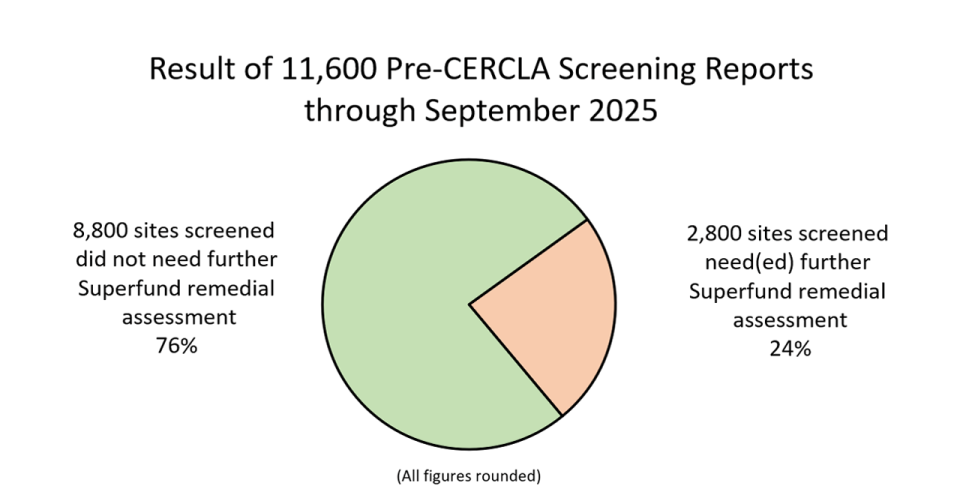Pre-CERCLA Screening
What is a Pre-CERCLA Screening?
A Pre-CERCLA Screening (PCS) is a relatively low-cost initial collection and review of existing information for a potential Superfund site.
The PCS helps determine whether the site should be addressed under the federal Superfund program or under another federal, state or Tribal cleanup program, and whether the site should be entered into the Active site inventory in EPA’s Superfund database for further remedial assessment.
PCS activities include reviewing existing information and collecting minimal additional information to determine whether a site warrants entry into the Superfund active inventory for further site assessment evaluation. PCS activities generally apply to non-Federal facility sites.
When is a PCS performed?
A PCS may be initiated for various reasons, including but not limited to:
- When EPA is notified of a potential site through a phone call or hotline, or receives a referral from a state, Tribe or other federal agency;
- When a state or Tribe has identified a potential site that needs to be screened and begins performing PCS work under a funded agreement with EPA;
- When EPA receives a CERCLA 105(d) petition to conduct a preliminary assessment – the PCS can be used to determine if a preliminary assessment is necessary;
- When EPA is conducting a geographic, sector or other broad-based discovery effort to identify sources of known contamination.
How does a PCS save money and time?
A PCS can reduce federal Superfund costs by:
- Identifying agency and program involvement early on to prevent duplication of effort across federal, state and Tribal programs
- Avoiding higher cost CERCLA assessments if PCS information shows they are not necessary
- Identifying sites needing attention sooner before potential contamination worsens
PCS Results
The following chart shows the number of PCS reports completed by the Superfund program and resulting decisions:

